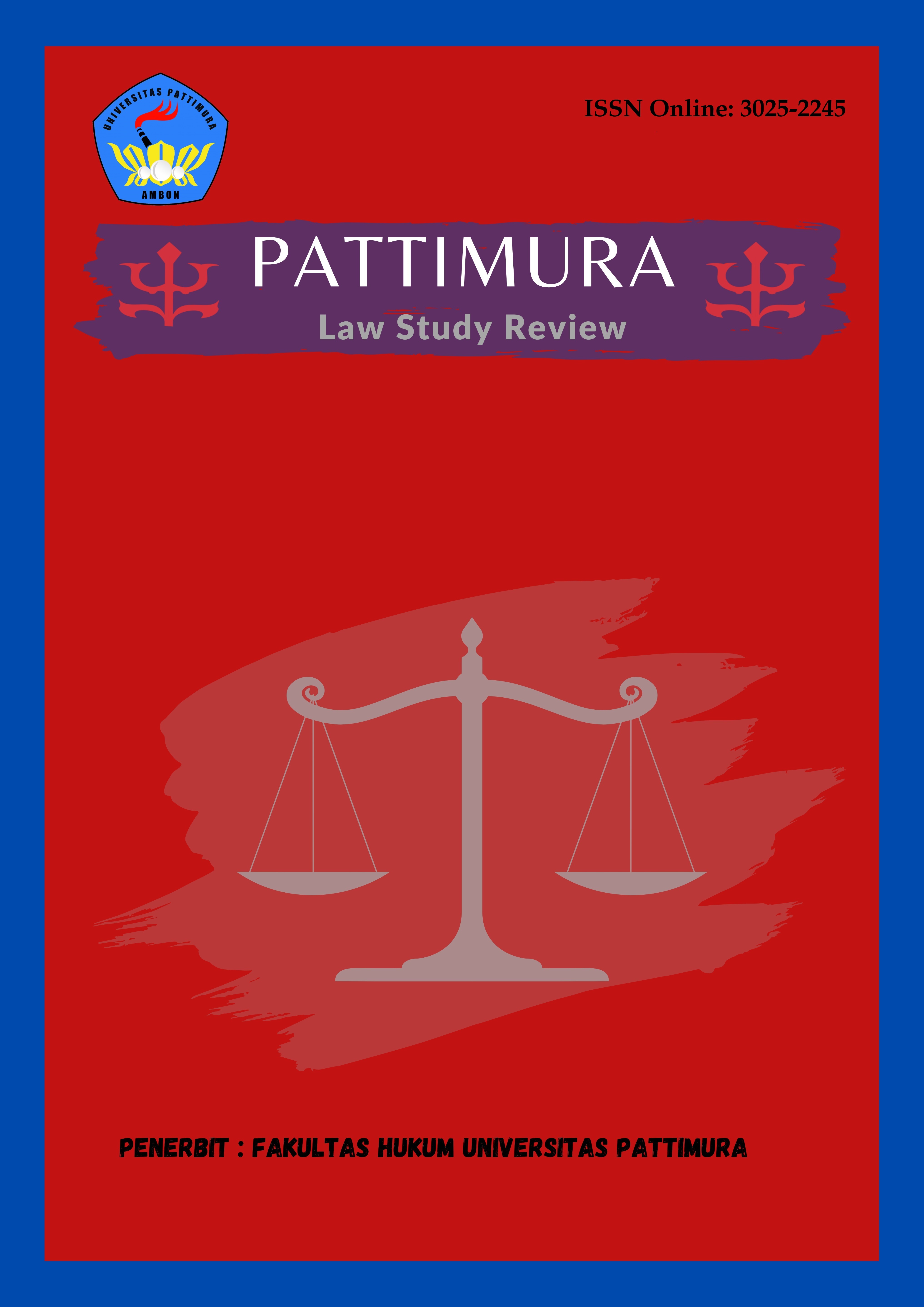Legalitas Pelaporan Kepada Anggota DPRD Dalam Menyampaikan Pendapat
Abstract
The statement made by the Chairman of Commission IV of the Maluku Regional People's Representative Council (DPRD), Samson Atapary, regarding the findings of the 2022 Maluku Provincial Scout Movement Regional Scout Movement (Kwarda) grant funds amounting to Rp. 2.5 billion fictitious amounts, and allegedly the PDI Perjuangan politician said that the management of the grant funds was managed by the Chairman of the Maluku Kwarda, Widya Pratiwi Murad and treasurer Ritha Hayat, resulted in the representative of the West Seram constituency being reported to the Maluku Police, Saturday (22/07/2023) this afternoon. The reporters who visited the Maluku Police office in Tantui came en masse. They consisted of elements of youth leaders, DPD KNPI Maluku, community leaders, traditional leaders and Upulatu from the Leihitu Peninsula, whose purpose was to report Samson Atapary for his statement which according to them had defamed Widya Pratiwi Murad Ismail. This research uses normative research methods conducted with a legislative approach, conceptual approach, and case approach. The sources of legal materials used are primary, secondary, and tertiary legal materials. The techniques for collecting legal materials and analyzing legal materials in the research include reading and reviewing various types of literature relevant to the research issues and directly related to the problems being studied. The DPRD in carrying out its duties and authorities as mentioned, the DPRD has the rights as regulated in Law Number 17 of 2014.Regarding the People's Consultative Assembly, the House of Representatives, the Regional Representative Council, and the Regional House of Representatives, have the following rights: (a). The right to interpellation (b) The right to inquiry (c) The right to express opinions.
Downloads
References
A M Fatwa, Melanjutkan Reformasi Membangun Demokrasi, Raja Grafindo Persada, Jakarta, 2004.
Ahmad Aulawi, Prespektif Pelaksanaan Hak Imunitas Anggota Parlemen dan Pelaksanaan di Beberapa Negara, Jurnal Media Pembinaan Hukum Nasional, Vol 2 Nomor 2. 2016
Akhmad Aulawi, “Perspektif Pelaksanaan Hak Imunitas Anggota Parlemen Dan Pelaksanaanya Di Beberapa Negara”, Jurnal Rechtvinding, http://rechtsvinding.bphn.go.id/jurnal_online , diakses 24 Maret 2024.
Dadang Suwanda, Akmal Piliang, “Penguatan Anggota Dpr Untuk Pemerintah Daerah Yang Efektif”, Remaja Rosdakarya, Bandung, 2016.
Erdianto, Tinjauan Yuridis Tindak Pidana Pencemaran Nama Baik Melalui Media Sosial, Jurnal Penelitian Hukum, Vol. 6, Nomor 1, 2020.
I Gde Panca Astawa, Problematika Hukum Otonomi Daerah di Indonesia, Alumni, Bandung, 2008.
Jimly Asshiddiqie, “Pengantar Ilmu Hukum Tata Negara”, Raja Grafindo Persada, Jakarta, 2012.
Leden Marpaung, Tindak Pidana Terhadap Kehormatan, Sinar Grafika, Jakarta, 2010.
Kementerian Pendidikan dan Kebudayaan, ”Kamus Besar Bahasa Indonesia” Balai Pustaka., Jakarta, 2007.
Nasrum Hipan, Perkembangan Sosial Media Terhadap Tindak Pidana Pencemaran Nama Baik, Fokus Media, Bandung, 2019.
Nurdin, A. "Peran DPRD dalam Pengawasan dan Penyampaian Aspirasi Masyarakat". Jurnal Administrasi Publik, 2020.
Peter M Marzuki, “Penelitian Hukum, Edisi Revisi”, Mandur Maju, Bandung, 2008.
Soemartono, R.M Gatot P. Hukum Lingkungan Indonesia. Jakarta, Sinar Grafika, 1996.
Wiryono Prodjodikoro, Tindak-Tindak Pidana Tertentu Di Indonesia, Eresco, Jakarta, 2018.
Copyright (c) 2025 Jihan Tomagola, Reimon Supusepa, Yohanes Pattinasarany (Author)

This work is licensed under a Creative Commons Attribution-NonCommercial 4.0 International License.
Authors who publish their manuscripts in this Journal agree to the following conditions:
- The copyright in each article belongs to the author, as well as the right to patent.
- Authors are able to enter into separate, additional contractual arrangements for the non-exclusive distribution of the journal's published version of the work (e.g., post it to an institutional repository or publish it in a book), with an acknowledgment of its initial publication in this journal.
- Authors are permitted and encouraged to post their work online (e.g., in institutional repositories or on their website) prior to and during the submission process, as it can lead to productive exchanges, as well as earlier and greater citation of published work.
- Authors have the right to self-archiving of the article (Author Self-Archiving Policy)













